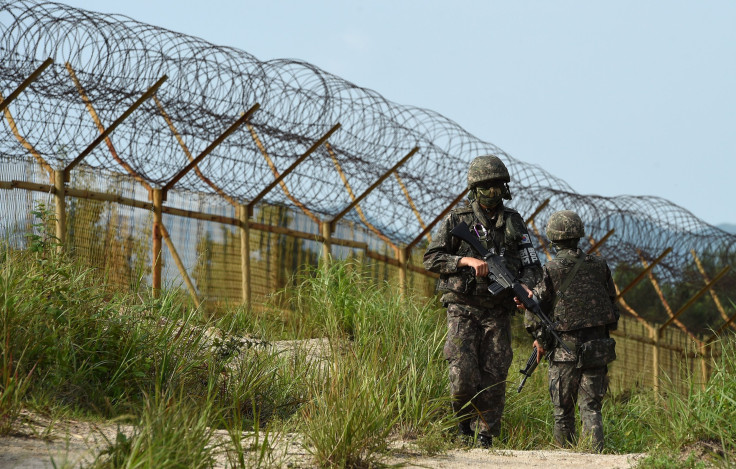North Korea, South Korea To Meet Again Sunday In Attempt To Ease Tensions

High-level representatives from South Korea and North Korea met inside the Demilitarized Zone (DMZ) Saturday to cool simmering tensions and were to talk again Sunday. South Korea's Yonhap news agency said the talks would resume 3 p.m., local time, Sunday.
The talks included, on the South Korean side, Kim Kwan-jin, national security adviser to the president, and Hong Yong-pyo, the country's unification minister. Kim Jong Un's deputy, Hwang Pyong So, and veteran negotiator Kim Yang Gon, represented the North.
The meetings are the first high-level talks in nearly a year, the product of mounting tensions that began this month after South Korea resumed propaganda broadcasts across the DMZ. The South said those broadcasts were in response to a landmine explosion that injured two soldiers. North Korea has denied responsibility, but a subsequent investigation by the U.N. Command Military Armistice Commission deemed Pyongyang to be culpable.
North Korea announced the meeting just hours before the expiration of a 5 p.m. deadline the country had imposed on South Korea to either stop broadcasting the messages or face "strong military action." The deadline passed without incident. The talks were expected to focus on the issue of the loudspeakers, New York Times reported.
Earlier this week, forces exchanged gunfire across the border in what marked the most serious military confrontation between the two sides in five years. In 2010, North Korean forces bombed the South Korean island of Yeonpyeong, killing two soldiers and two civilians. The same year, a South Korean naval ship was sunk off the country's west coast in the Yellow Sea, killing 46 seamen. Observers widely suspect North Korea to be responsible for the attack, though it has not accepted responsibility.
"They need to come up with some sort of an agreement where both sides have saved face," James Kim, a research fellow at the Asan Institute for Policy Studies in Seoul, told Reuters. "That would be the trick."
© Copyright IBTimes 2025. All rights reserved.






















